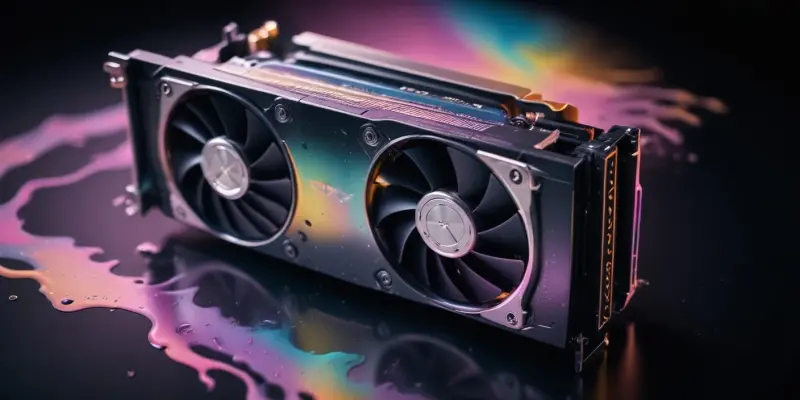The Gigabyte GeForce RTX 5080 AORUS Master graphics card has become a major topic of discussion, highlighting concerns over thermal gel leaks. Recently, users have reported the gel, intended as an improvement over traditional thermal pads, leaking onto critical components like the PCIe riser. This unexpected migration, happening shortly after purchase, underscores potential issues in Gigabyte’s manufacturing or quality control processes. As a server-grade gel, it is designed to be non-fluid, yet its tendency to spread might threaten the GPU’s performance, which is concerning given the card’s substantial $1,500 price. Although non-conductive, thermal gel’s unpredictability could still interfere with the GPU’s functionality by blocking the PCIe connections. Consequently, this situation calls for meticulous attention from Gigabyte to identify and rectify the underlying cause to maintain trust among tech enthusiasts and customers.
Manufacturing and Quality Assurance Concerns
The primary concern centers around Gigabyte’s quality assurance procedures and their effectiveness. Given the high price and advanced technology of the RTX 5080 AORUS Master, consumers expect no compromise in the product’s reliability. The gel leak situation, however, suggests a gap in the manufacturing process, where the gel’s properties were perhaps not accurately assessed. This negligence might have slipped through the net of quality checks, leading customers to question the brand’s commitment to detail and dependability. The graphics card’s premium nature requires that each component is thoroughly tested and evaluated to prevent such issues. Prompt response from Gigabyte’s distributor is commendable as they work hard to find a resolution, yet it’s imperative that Gigabyte reevaluates its internal protocols to prevent recurrence. Addressing this promptly and effectively will be crucial in restoring consumer confidence and ensuring no lasting damage to the brand’s reputation.
Implications for Future Product Development
This incident with the RTX 5080 AORUS Master could serve as a crucial lesson for Gigabyte and the broader tech industry. As technology progresses and components become more sophisticated, the pressure to innovate while maintaining robustness becomes paramount. Gigabyte’s handling of the thermal gel issue importantly highlights the need for stringent quality and testing standards in future product design. It also emphasizes the importance of having clear and comprehensive policies that address potential defects and provide consumer protection. Moving forward, tech companies should ensure that their research and development teams are fully equipped to anticipate and mitigate such unforeseen issues. Consumers, on the other hand, can hope for more transparency in how companies address product flaws and strive to improve overall reliability. This incident serves as a reminder of the importance of balancing innovation with reliability to maintain trust and loyalty within the market.

